Academic and Career Guidance Content (ACGC-COSP)
To orient oneself in a world undergoing great transformation represents a significant challenge for our youth. As parents, we often realize the magnitude of our children’s guidance needs when it is time to make educational or career choices. For many students, these needs are latent and only manifest themselves once they are faced with the need to take a decision. In these circumstances it is common for students and their parents to experience anxiety, worry or indecision.
To respond to this important need that concerns all students at some point in their academic career, the Ministry of Education (MEQ) has made Academic and Career Guidance Content (ACGC-COSP) compulsory since 2017 for all students from Grade 5 of elementary to Secondary 5. The content establishes a structuring approach allowing students to begin developing an orientation in their careers. It is complementary to the various actions already in place in schools, including the professional services offered by guidance counsellors.
The ACGC-COSP aims to equip students in their reflections about their academic and career choices. It encourages them to engage in planning for their future in a very gradual manner, beginning in Grade 5 of elementary school, while promoting motivation and school perseverance.
This compulsory content, about 10 hours per year, is not evaluated but can nevertheless be integrated into a subject.
